Ethical Brands Leading the Charge Against Fast Fashion

In the world of fashion, a growing number of ethical brands are stepping up to combat the detrimental effects of fast fashion. Fast fashion, characterized by its rapid production of cheap, trend-driven clothing, contributes significantly to pollution, waste, and exploitative labor practices. In contrast, ethical brands prioritize sustainable practices, fair wages, and safe working conditions for their workers. Here's why they're fighting back and how you can join the movement.
Why Ethical Brands are Fighting Fast Fashion
1. Lead and Hazardous Chemicals on Clothing
Fast fashion items are often produced with little regard for the use of hazardous chemicals like lead, phthalates, formaldehyde, and azo dyes that pose serious health risks to both consumers and the environment. Lead, a heavy metal commonly used in dyes and pigments, can have detrimental effects on human health, particularly on the nervous system. Exposure to lead has been linked to developmental delays in children, as well as a range of other health issues in adults. Despite regulations limiting the use of lead in consumer products, it is still found in many fast fashion garments, especially those produced in countries with less stringent regulations.
In addition to lead, fast fashion clothing can contain a cocktail of other harmful chemicals. Phthalates, used to soften plastics in clothing, have been linked to hormone disruption and reproductive health issues. Formaldehyde, used as a preservative in clothing, is a known carcinogen. Azo dyes, used to color textiles, can break down into aromatic amines, some of which are classified as carcinogenic. These chemicals can leach out of clothing during wear and washing, posing a risk to both the wearer and the environment when they enter waterways through wastewater.
2. Exploitation of Women
In addition to its environmental impacts, fast fashion has profound social consequences. The pressure to produce cheap clothing quickly often leads to the exploitation of labor in developing countries. Workers in these regions are frequently subjected to poor working conditions, long hours, and low wages. Furthermore, the focus on fast production cycles can compromise worker safety, as seen in tragic incidents such as the Rana Plaza collapse in Bangladesh.
A significant portion of fast fashion production occurs in developing countries, where up to 80% of workers are young women aged 18 to 24. These women are frequently underpaid, living in poverty, and vulnerable to exploitation and sexual harassment. Shockingly, reports from the Asia Floor Wage Alliance reveal that many women in these factories are fired for becoming pregnant.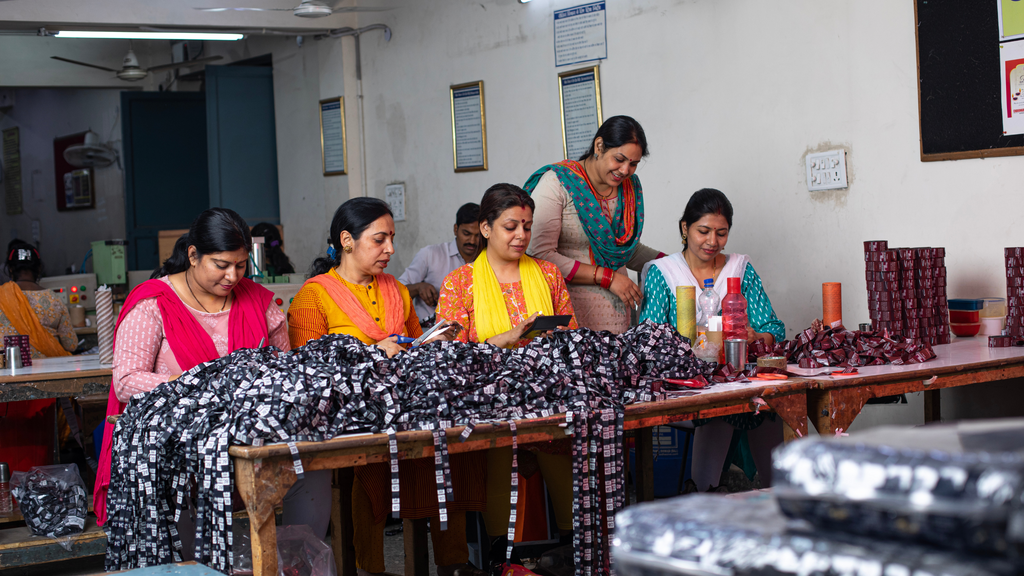 3. Clothing that Falls Apart
3. Clothing that Falls Apart
The fast fashion model encourages overconsumption and a throwaway culture. Trends change at an unprecedented pace, leading to a cycle of constant buying and discarding. This not only puts a strain on our planet's resources but also perpetuates a culture of waste. The industry's production processes also have a significant impact on water usage and pollution, with textile dyeing and treatment being one of the largest contributors to water pollution globally. 4. Harm to the Environment
4. Harm to the Environment
Fast fashion, characterized by its rapid production and consumption cycles, has significant negative impacts on the environment, society, and even individual well-being. One of the most pressing issues is its contribution to environmental degradation. The industry is notorious for its high carbon footprint, with the textile sector accounting for around 8% of global greenhouse gas emissions. Fast fashion's reliance on cheap, synthetic fibers exacerbates this problem, as these materials often end up in landfills where they can take hundreds of years to decompose.
The rapid turnover of fast fashion items leads to a staggering amount of clothing ending up in landfills. In the United States alone, only 10% of donated clothes are resold, while the rest are disposed of in landfills, often leeching harmful chemicals from the clothing into our soil and waterways.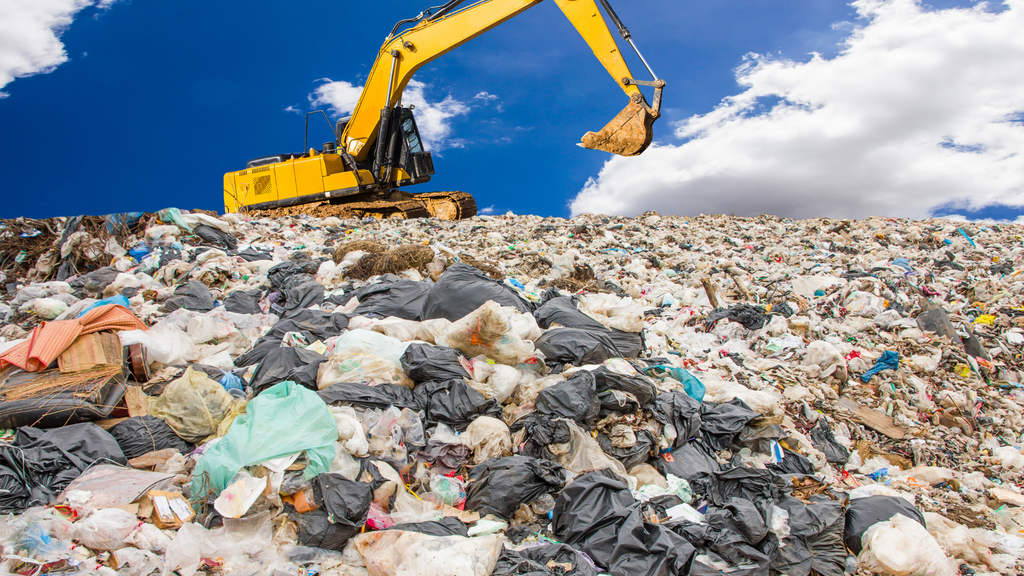 How You Can Join the Fight Against Fast Fashion
How You Can Join the Fight Against Fast Fashion
Individual consumers can play a crucial role in combating the negative impacts of fast fashion through mindful shopping practices and advocating for change. One of the most effective ways to reduce the demand for fast fashion is to embrace a more minimalist and sustainable approach to clothing. This can include buying fewer items of higher quality, opting for timeless styles over trend-driven pieces, and supporting brands that prioritize sustainability and ethical production practices.
At Passion Lilie, we are dedicated to providing our customers with stylish, ethically crafted clothing. Our garments are free from harmful chemicals, and we ensure safe working conditions and fair wages for our artisans. As a member of the Fair Trade Federation, we are committed to supporting our artisans and their communities.
Read more about Passion Lilie’s ethical practices here. By choosing to support ethical brands like Passion Lilie, you can make a difference in the fight against fast fashion. Together, we can create a more sustainable and equitable fashion industry for future generations.
Here are some of our favorite pieces from the Spring/Summer 2024 collection:
This sleeveless sunburst organic dress features a gently pleated waist that exudes timeless charm and a breezy elegance, making it perfect for warm, sunny days. With its fresh sunburst design and sustainable fabric, you'll feel effortlessly stylish while supporting eco-friendly fashion choices.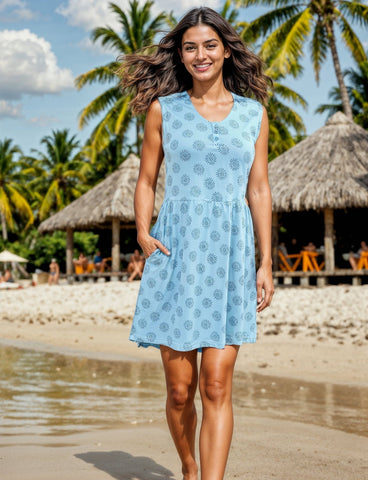 Sunny Organic Top
Sunny Organic Top
Grab this organic sun top for an instant mood boost! This cheerful hand block printed design is sure to brighten any day. The length of this shirt is on-trend and provides full coverage, giving you the comfort and confidence to shine all day.
Organic craftsmanship meets contemporary style with this blue ikat button down. Made from 100% organic hand woven cotton, this shirt boasts a unique design featuring accents of orange and white. 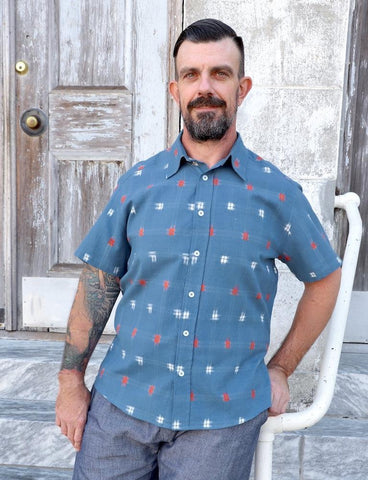


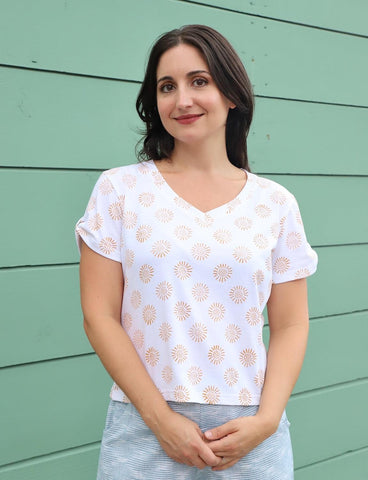
Leave a comment